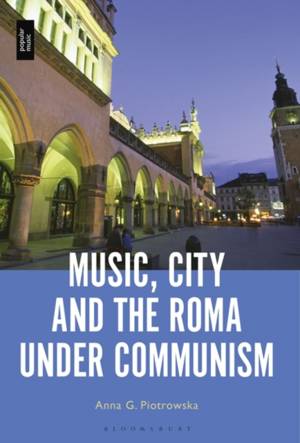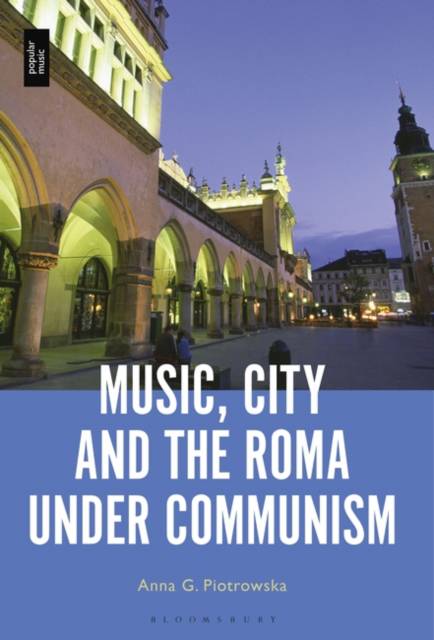
Je cadeautjes zeker op tijd in huis hebben voor de feestdagen? Kom langs in onze winkels en vind het perfecte geschenk!
- Afhalen na 1 uur in een winkel met voorraad
- Gratis thuislevering in België vanaf € 30
- Ruim aanbod met 7 miljoen producten
Je cadeautjes zeker op tijd in huis hebben voor de feestdagen? Kom langs in onze winkels en vind het perfecte geschenk!
- Afhalen na 1 uur in een winkel met voorraad
- Gratis thuislevering in België vanaf € 30
- Ruim aanbod met 7 miljoen producten
Zoeken
€ 67,95
+ 135 punten
Uitvoering
Omschrijving
This book highlights the role of Romani musical presence in Central and Eastern Europe, especially from Krakow in the Communist period, and argues that music can and should be treated as one of the main points of relation between Roma and non-Roma. It discusses Romani performers and the complexity of their situation as conditioned by the political situations starkly affected by the Communist regime, and then by its fall. Against this backdrop, the book engages with musician Stefan Dymiter (known as Corroro) as the leader of his own street band: unwelcome in the public space by the authorities, merely tolerated by others, but admired by many passers-by and respected by his peer Romain musicians and international music stars. It emphasizes the role of Romani musicians in Krakow in shaping the soundscape of the city while also demonstrating their collective and individual strategies to adapt to the new circumstances in terms of the preferred performative techniques, repertoire, and overall lifestyle.
Specificaties
Betrokkenen
- Auteur(s):
- Uitgeverij:
Inhoud
- Aantal bladzijden:
- 232
- Taal:
- Engels
Eigenschappen
- Productcode (EAN):
- 9781501380853
- Verschijningsdatum:
- 24/08/2023
- Uitvoering:
- Paperback
- Formaat:
- Trade paperback (VS)
- Afmetingen:
- 152 mm x 229 mm
- Gewicht:
- 308 g

Alleen bij Standaard Boekhandel
+ 135 punten op je klantenkaart van Standaard Boekhandel
Beoordelingen
We publiceren alleen reviews die voldoen aan de voorwaarden voor reviews. Bekijk onze voorwaarden voor reviews.









